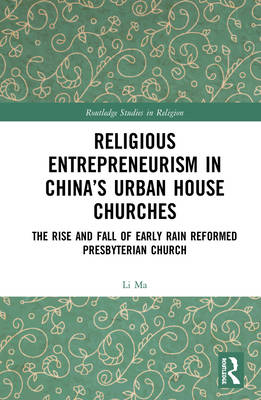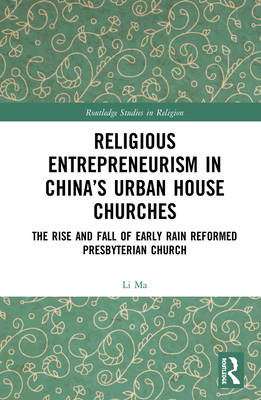
- Retrait gratuit dans votre magasin Club
- 7.000.000 titres dans notre catalogue
- Payer en toute sécurité
- Toujours un magasin près de chez vous
- Retrait gratuit dans votre magasin Club
- 7.000.0000 titres dans notre catalogue
- Payer en toute sécurité
- Toujours un magasin près de chez vous
Religious Entrepreneurism in China's Urban House Churches
The Rise and Fall of Early Rain Reformed Presbyterian Church
Li MaDescription
This book offers a unique historical documentation of the development of the ambitious religious entrepreneurism by leaders of the Early Rain church (and later Western China Presbytery leadership), in an effort to gain social influence in China through local institution-building and global public image management. It unravels the social processes of how this Christian community with a public image of defending religious freedom in China was undermined by an internal loss of moral authority.
Based on publicly available texts from Chinese social media that aren't readily available in the West as well as in-depth interviews, it is framed by existing scholarship in social theories of the public sphere, charismatic domination in social transition, and the role of power in organizational behaviour. These churches' stories show how Christianity, which has long been politically marginalized in communist China, has not only adapted and challenged the socio-political status quo, but how it was also ironically shaped by the political culture.
This is an insightful and critical ethnographic study of one of modern China's most famous house churches. As such, it will be of great interest to scholars of Religion in China as well as those working in Religious Studies, Asian studies, Chinese studies, and Mission Studies more generally.
Spécifications
Parties prenantes
- Auteur(s) :
- Editeur:
Contenu
- Nombre de pages :
- 242
- Langue:
- Anglais
- Collection :
Caractéristiques
- EAN:
- 9780367221713
- Date de parution :
- 05-07-19
- Format:
- Livre relié
- Format numérique:
- Genaaid
- Dimensions :
- 160 mm x 236 mm
- Poids :
- 498 g

Les avis
Nous publions uniquement les avis qui respectent les conditions requises. Consultez nos conditions pour les avis.






